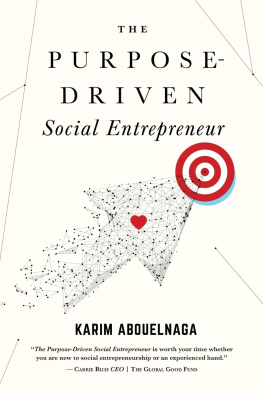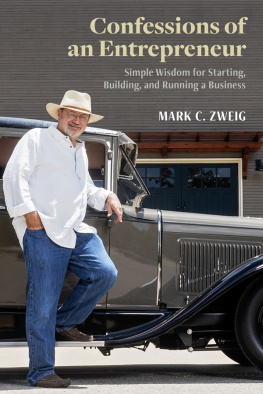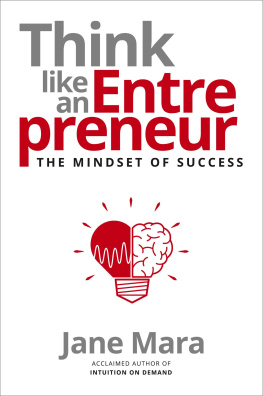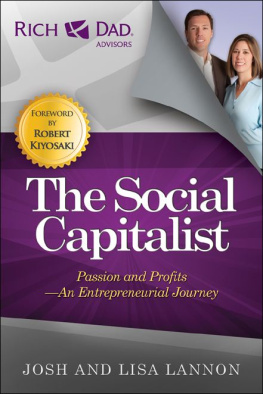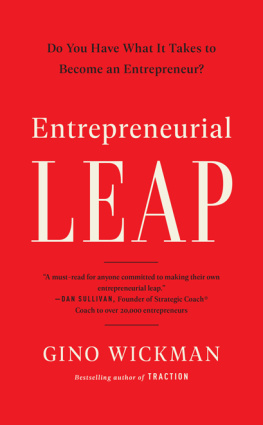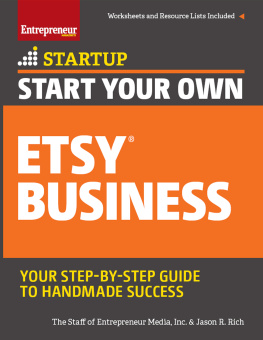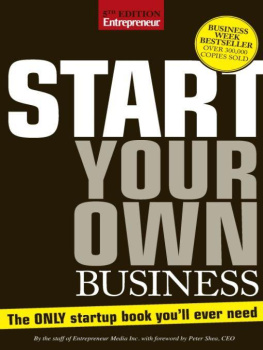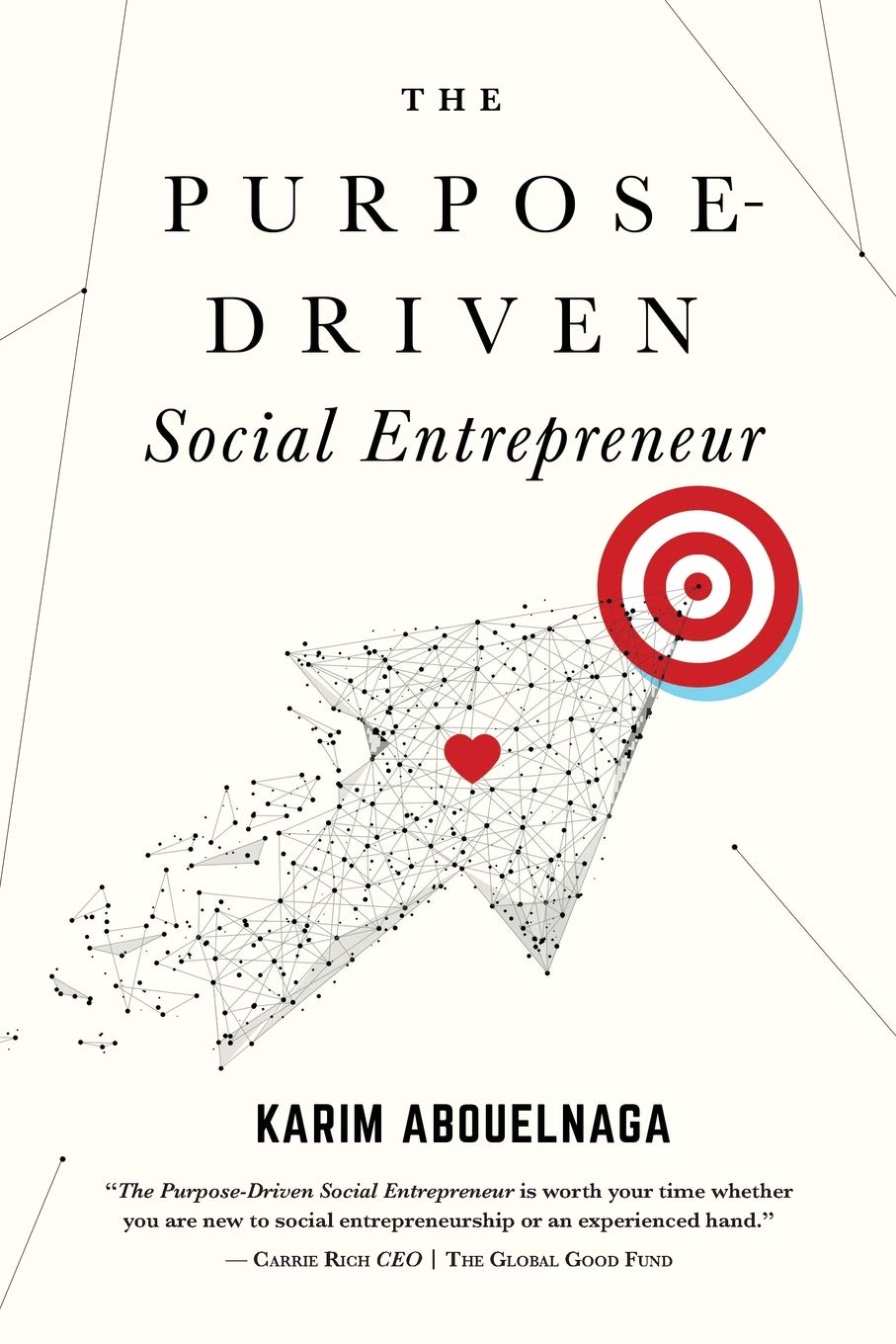The
Purpose-Driven
Social Entrepreneur
Karim Abouelnaga

Preface
T his book was written by someone who exudes passion, for people who at some point in their lives have been passionate about something, and for anyone who wants to make decisions with more intention and purpose. My journey as a social entrepreneur, an eighteen-year-old founder, an executive director of a nonprofit, and a CEO of a public benefit corporation has heavily influenced this book. This book sets out to help you answer the questions: How do you know when youve found a passion that is worth pursuing? How do you live a life of purpose without losing your passion? How do you start something meaningful?
I have experienced the highs and the lows of being a social entrepreneur. There have been moments along my journey that have forced me to question the significance of my work, whether I was on the right path, and whether I could sustain the work I was doing with the financial, emotional, and psychological toll it takes on me daily.
My purpose is to improve public education to ensure that all kids have an equal chance at fulfilling their lifes ambitions. My goal is that everyone who finishes this book will at some point in the near future speak their purpose into existence with the same level of conviction that I have in mine. Only then can we create a world of more engaged, intentional people whose collective actions inspire the billions of people on this planet to do more good.

Introduction
I spent my freshman year of college at the City University of New Yorks Baruch College. Just before that, my older brother and I had graduated from Long Island City High School in the same year. Because our parents came from little means and were immigrants in the United States, my siblings and I wound up attending some of New York Citys most struggling public schools. Our high school had well over 4,000 students when I was a freshman, with roughly 1,400 in my freshman class, but just under 530 in my graduating class. Of the kids who graduated, only a fifth were estimated to be college-ready. While the societal expectations were never truly that high, it took me several years to fully understand why.
My first semester at Baruch had wrapped up and I had received a 4.0 GPA. Excited by the news, I reached out to a few adults that I had started to develop relationships with, many of whom I had met through a nonprofit I participated in when I was in high school called Rewarding Achievement (REACH). Encouraged by their responses, I took a leap of faith and decided I was going to transfer colleges.
I realized that I had gone about my college application process all wrong the first time around. Instead of applying to a school that was well regarded for the major I wanted to pursue, I should have applied to the school or university that was the best school I could possibly get intoyou know, just in case I decided to change majors or pursue something else, which I eventually wound up doing.
After a visit to Cornell University in February of 2010, I decided I was going to apply to their School of Hotel Administration. My senior year of high school I was rejected from Massachusetts Institute of Technology (MIT). It was the only other school besides Baruch that I put a meaningful amount of effort into getting into. I visited the campus and went on an alumni interview. Unfortunately, or fortunately, it did not work out.
Nonetheless, the rejection from MIT bruised my ego, and I never anticipated I would apply to another elite school. Until I visited Cornell. At the time, I was working at an aquatic center when my boss had a friend who was going up to visit the university. She suggested that I spend the weekend with her and check out the campus and see what it had to offer. Initially, I didnt jump on the opportunity, but eventually decided to take advantage of it and made the trip. Besides, I had a childhood friend there whom I could visit and spend time with if I really was not enjoying the trip.
When we finally got to Cornell on a bitter-cold day in February, I asked my childhood friend Nick to meet up. I got to see his studio and meet some of his friends, all of whom were normal-looking and -acting people. For some weird reason, after I got rejected by MIT, I thought all of the kids who were at these top colleges and universities were brainiacs of some sort. Since I was not a brainiac, I figured that not getting into MIT was for the better. Nicks friends may have been brainiacs, but I could not tell in the couple of hours I had known them. In fact, the topic of advanced placement (AP) courses and tests taken in high school came up, and Nicks friends openly shared how they had scored poorly on some of the same ones that I had gotten threes and fours on. (AP tests are scored on a scale of one to five, with one being the lowest and five being the highest, and if you score a three, you usually get college credit.) That discovery led me to believe that I might actually fit in on one of these campuses, and that maybe I should consider applying to transfer.
When I asked Nick and his friends what school I should apply to, they initially suggested I apply for the applied economics and management program in the College of Agriculture and Life Sciences. I laughingly said I did not want to be a farmer. That was when they suggested the School of Hotel Administration. It was sort of like a business school, but they focused on hotels and restaurants. Oh, and by the way, they said the kids there were pretty cool.
I got back after the long weekend, and I could not stop thinking about getting into Cornell and the School of Hotel Administration. I started thinking about my personal statement, and I started looking into scholarships. It was like senior year of high school all over again, except this time I was a lot more excited. I felt like I had found the perfect school for myself. Surprisingly, this was also where my journey of purpose really started. While I do believe there is an element of choice about what to focus your life on, I also recognize that there is an element of serendipity, where you find yourself engaged in something that means so much to you.
One of the scholarships I ran across was funded by the United Negro College Fund and Coca-Cola. In 2009, McKinsey & Company had just published a report on the impact of the achievement gap in Americas schools. The report was a huge deal in education and showed that the gaps between blacks and whites were costing the economy over $300 billion in GDP each year, which was the economic equivalent of a permanent national recession. The gaps between kids who were rich and kids who were poor had a negative economic impact that was almost twice that. One of the reports conclusions was that we could avoid the economic downturns that existed if we were able to close the gaps in achievement between black and white kids and rich and poor kids. This was especially pertinent in 2009 because of the housing bubble that led to one of the biggest recessions since the dot-com bubble burst and the Great Depression. The significance of the report was compounded by the United States Censuss findings that the demographics in America were changing much more quickly than previously anticipated. In fact, where the disparities were widest, among white and nonwhite children, nonwhite children were expected to make up more than 50 percent of the school-aged population by 2023. Recent data has shown that we have reached that point in 2015.

